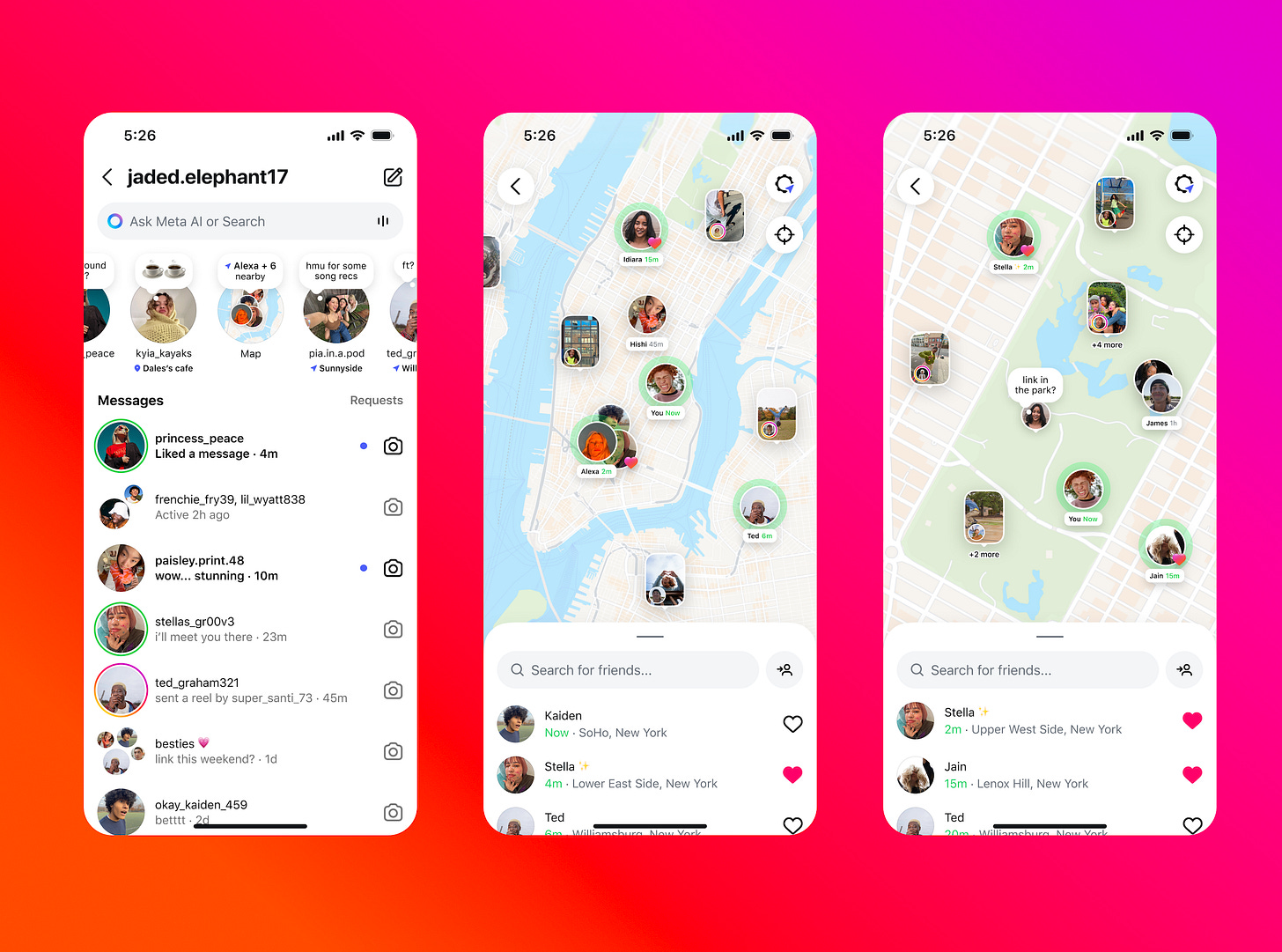Five Things: Genocide, Tracking, Virality, Futureproofing, America
It's Sunday. Read this now.
Hello and welcome back to Five Things!
It looks like the war in Gaza is finally over and the remaining 20 living hostages will be released soon. That’s a huge relief for everyone living in Israel and Gaza. I hope that this is the beginning of a peace process for the whole region and I hope that many more Arab countries will join the Abraham Accords soon. I am also glad that Trump didn’t get the Nobel Peace Prize. An authocratic narcissist who is trying to destroy the democratic institutions of his country should never get any award!
I was in Berlin this week to meet with former Chancellor Olaf Scholz to discuss the state of Artificial Intelligence with him, with a particular focus on Agentic AI and European digital souvereignty. Olaf and I have had many conversations over the last three decades or so about the intersection of tech and policy, so it was good to catch up with him now that he had left office. It’s valuable to discuss the rapid development of AI with somebody who doesn’t have a tech or business perspective, but looks at this from a lawmaker’s perspective. We showed him Sokosumi and explained why we are building a decentralized and open infrastructure for Agentic AI.
Here are this Sunday’s Five Things - enjoy!
How the Media Manufactured a ‘Genocide’
If Israel’s war in Gaza qualifies as genocide, it would constitute a striking historical outlier: perhaps the first such case of genocide triggered by a mass terrorist attack involving the slaughter of civilians and the taking of hostages; the first in which the genocider permitted food, fuel, and humanitarian aid to flow into the territory of its purported victims; and potentially the only instance in which the perpetrators lacked any prior plan or ideological commitment to extermination. It may also be unique in that the targeted group’s combatants have deliberately embedded themselves in civilian infrastructure and sought to increase civilian casualties for strategic and propaganda purposes. And it could be the only genocide that might plausibly be halted on the spot—not by the genocider, but by the group claiming victimhood. Specifically, were Hamas to release the hostages and lay down its arms, Israel’s military campaign—having achieved its core objectives—would likely cease.
The blatant anti-semitism present in so many articles about Gaza is so apalling.
“Lighthouses in the Sky”
To me this immediately raised alarm bells. Having a friend’s location on demand appears to strip them of the very same autonomy that nearly every teenager fights so hard for against their parents. Why is this something we find attractive and how might it be impacting our ability to maintain relationships with one another? In an attempt to answer these questions, I talked to 15 location sharers and polled an additional 67 to discuss how location sharing is part of their lives and understand why they share, who they share with, and what it really means to them to do so.
In our family we have a discussion about tracking each other. I don’t mind it if they want to see where I am, but I couldn’t care less to see where my adult kids are.
Is ‘Going Viral’ Dead?
With the rise of algorithmically driven social media platforms like TikTok, moments that get people around the world talking, on cable news and at the dinner table, are becoming less common. Each user’s feed is hypertailored to them, meaning no one sees the same version of the internet.
Content creation can now be a full-time job, and as most creators jockey for fame and influence, piggybacking off trending topics and buzzwords to game the system, it’s become far easier for the average person to find hundreds of thousands of followers or even millions of views.
Going viral was mostly a concept that worked when somebody poured lots on money into hidden media campaigns, but nobody wanted to acknowledge that.
The Techno Optimist’s Guide to Futureproofing Your Child
Every society trains its children for the demands of the moment. Elites from Alexander the Great to Regency Era lordlings on their grand tours had private tutors to mold them into world-beating polymaths, or at least clubbable men of leisure. When America was mostly agricultural, spinsters in one-room schoolhouses provided moral instruction using McGuffey’s Eclectic Reader and taught arithmetic using story problems about butter-churning and the measurements of an ox’s hindquarters. With the rise of industry in the 19th century, schools with regimented rows of desks and hourly bells and a foremanlike teacher cranked out punctual, docile workers to staff the new factories. The meritocratic turn of the millennium, with its résumé-padded achievement track, yielded David Brooks’s “Organization Kid,” a striving, overscheduled conformist engineered to assume their rightful place in the credentialed elite.
The challenge of this moment, though, is the utter lack of consensus as to what may happen and which traits or skills will help when it does. Even the class of parents who spend their days thinking about how technology will change the future is casting about for an answer to the ancient but newly urgent question of how best to raise a child.
I am as clueless as anyone when it comes to figuring out what kind of path can make sense for our kids.
I’ve Gone to Look for America
Mile by mile, I-95 leads us into the hurt.
At a Whataburger counter I meet Bill and Sienna, who have traveled the interstate around a dozen times over the past few months to join protests up and down the East Coast. Bill wears a T-shirt that reads, “Stop Pretending Your Racism Is Patriotism.” He’s spoiling for a fight. “I’m a big guy,” he says. “I love it when people ask me about this shirt when they don’t like it, because it’s a pretty good testament to their character.”
Others are fatalistic, certain that what’s happening is beyond their control. “Doesn’t matter what we think,” shrugs Don, who along with several friends just visited Monticello. “They’re going to do what they do.” That sentiment is echoed by Christy, 64, traveling with her pregnant 41-year-old daughter and her 11-year-old granddaughter. “Where are we headed? To a time when ten people run the country and the rest of us just live with it,” she says.
Fantastic story.
That’s it. Have a great Sunday! If you missed last Sunday’s edition of Five Things, have a look here:
— Nico








